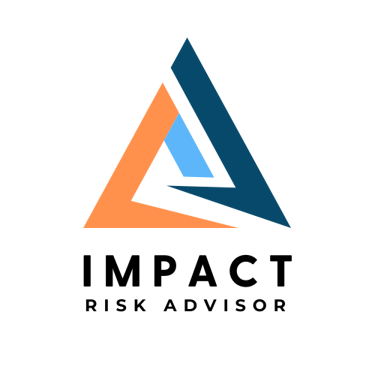Upgrading Security Through Third-Party Risk Evaluation
Third-Party Risk Evaluation by IMPACT Risk Advisors helps identify vendor risks, ensure compliance, and safeguard your business from emerging security threats.
7/10/20252 min read


In today's connected digital economy, businesses rely heavily on third-party vendors to operate more efficiently, reduce costs, and expand effectively. However, with increased dependence comes heightened risks of cyberattacks, regulatory lapses, and operational disruptions. When third-party providers access confidential data and critical systems, companies need advanced processes to monitor and manage vendor-related risks.
Third-Party Risk Evaluation plays a pivotal role in making sure that vendor relationships support security, compliance, and business continuity. A disciplined risk assessment process identifies vulnerabilities and prioritizes vendor monitoring based on risk. Third-party assessments help organizations understand how vendors handle data, protect systems, and meet evolving regulatory demands. Without a well-established evaluation method, firms expose themselves to reputational damage, financial penalties, and extended disruptions.
Why Does Your Organization Need Vendor Risk Analysis?
1. Ensure Regulatory Compliance-
Industries such as finance, healthcare, and technology are governed by strict data protection and security laws including HIPAA, GDPR, ISO 27001, and SOC 2. Third-party risk assessments help companies verify that their vendors comply with relevant regulatory regimes, reducing the risk of penalties and maintaining stakeholder trust.
2. Identify Security Vulnerabilities Early-
Vendors often have access to internal applications, databases, or systems. If left unexamined, they can become weak points in the security chain. Risk assessments uncover potential threats before they lead to breaches and give organizations time to implement controls.
3. Maintain Business Continuity-
Supply chain or vendor service disruptions can critically impact a business. Third-party risk assessments include business impact analysis and business continuity planning to help keep critical services operational even if a vendor is disrupted.
4. Prioritize Risk-Based Oversight-
Not all suppliers pose the same level of risk. Grading and categorizing suppliers based on their significance and sensitivity allows organizations to allocate oversight resources effectively. Higher-risk suppliers can be placed under closer supervision and more robust contractual arrangements.
5. Enhance Strategic Decision-Making-
Through in-depth analysis of supplier performance and compliance, organizations can make better-informed decisions about onboarding, renewing, or terminating suppliers. This improves operational efficiency and reduces liability.
6. Mitigate Reputational Risk-
Vendor mistakes or data loss can significantly harm a company’s reputation. Systematic risk assessment helps detect vulnerabilities early and sets clear expectations with vendors. This protects brand integrity and fosters accountability.
7. Improve Contract and SLA Negotiations-
Insights gained during the evaluation process strengthen a company’s ability to negotiate better service-level agreements and contracts. These agreements can clearly define security responsibilities, termination provisions, and remediation measures, minimizing future risks.
Why Choose IMPACT Risk Advisors?
At IMPACT Risk Advisors, we provide Third-Party Risk Assessment services guided by professionals dedicated to actionable intelligence, regulatory adherence, and resilience. Our disciplined, scalable, and client-focused approach combines industry expertise, hands-on technical knowledge, and continuous monitoring to help organizations stay ahead of material risks and build stronger vendor relationships with confidence and transparency.
Conclusion:-
Third-Party Risk Evaluation is essential for protecting your organization from evolving security threats and compliance risks. By applying advanced vendor assessments and strong control practices, organizations can build stable, secure, and trusted third-party relationships. A proactive vendor risk strategy strengthens operational stability, supports regulatory compliance, and contributes to long-term success in today’s dynamic business environment.
